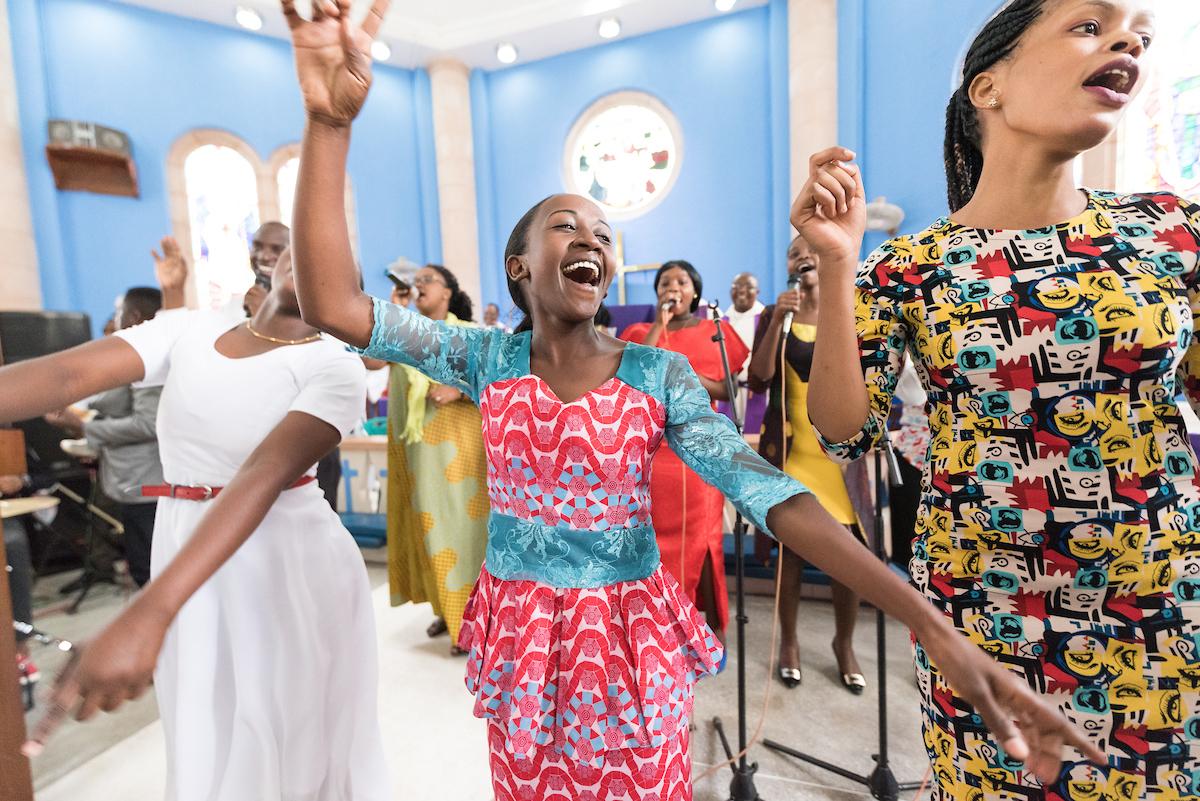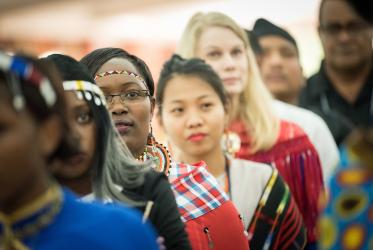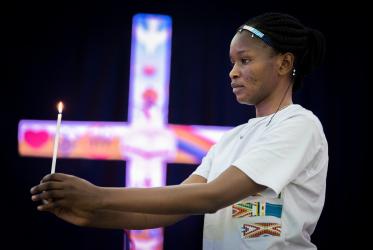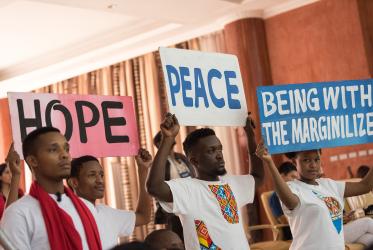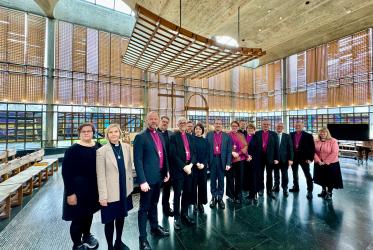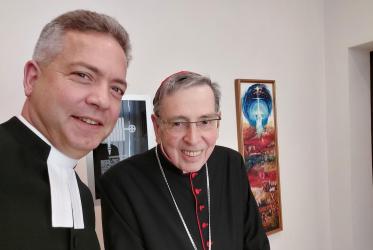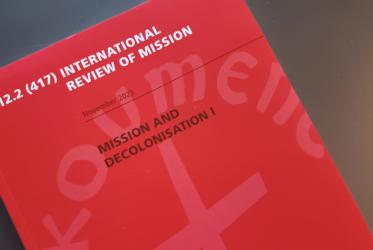The Arusha Call to Discipleship is at once exhilarating, transformative and challenging to the point of discomfort for some, reflected leaders of the World Council of Churches (WCC) Commission on World Mission and Evangelism (CWME) during a 20 May press conference and book launch in Helsinki, Finland.
The Arusha Call was the outcome of the Conference on World Mission and Evangelism held in Tanzania in March, the largest conference of its kind since 1910.
The ecumenical movement itself is rooted in the mission movement, said WCC general secretary Rev. Dr Olav Fykse Tveit, who added that the Arusha conference allowed people to share vastly different dimensions of spirituality. “I would even say we all are sharing the different dimensions of being the church: What does it mean to follow Jesus Christ today in the many contexts of the world?”
The CWME meeting was hosted by the Evangelical Lutheran Church of Finland. Archbishop Dr Tapio Luoma, said, in his words of welcome, “It’s an honor to host this significant meeting and reflect on the call to transforming discipleship.”
Metropolitan Dr Geevarghese Mor Coorilos, moderator of the commission, explained that the commission is mandated to organize a mission conference roughly once every 10 years. “One of the major focuses of this meeting in Helsinki is to look at the conference by way of evaluating it,” he said. “It is also to look at some of the insights it produced. We are also here to look beyond Arusha, to the theme of the next WCC Assembly which will take place in Germany in 2021.”
The theme for the 2021 WCC assembly is "Christ’s love moves the world to reconciliation and unity.”
A prophetic call
Rev. Dr Janet Corlett, vice moderator for the commission, reflected that most of the people gathered in Helsinki had not met since the Arusha conference. “What does transforming discipleship mean for us personally, for our churches, for our countries?” she asked. “Was it just a nice experience or has it changed us? Will it change anything? The Arusha Call was the outcome, the consensus of the meeting, and I believe it was a very prophetic call.”
Bishop Dr Simo Peura, Evangelical Lutheran Church of Finland, represented the local host of the meeting at the book launch, saying this was the most significant ecumenical meeting held in Finland for many years. “It is also a platform for our church and all the churches in Finland to learn from the mission experience from different parts of the world," he said.
Fr Richard Nnyombi, a commission member, said he believed that the location of the March conference in Arusha was not by chance or accident. “The context of the conference in Arusha means God wanted to remind us of the centrality of peace, justice and reconciliation as churches and followers of Christ," he said. “Every day I ask: what am I going to do to bring the message of Arusha to my brothers and sisters, and to my church?”
Rev. Dr Risto Jukko, director of the commission, addressed the question: Why does this meeting take place in Helsinki? “I see this meeting as a link of along chain of an ecumenical movement which began in 1910,” he said. “These nordic countries have a long, long tradition in mission.”
The passionate heart
Journalists from abroad submitted questions during the press conference via email and twitter, one of which was: “What is the most important outcome you expect from the meeting in Helsinki?”
Corlett answered: “One of the important things for me is that we really think about how we can make the experience in Arusha - the spiritual experience - live and have it be practical in the WCC and the world. How we remain the warm heart, the beating heart, the passionate heart that reminds the rest of the organization that we are first and foremost humble followers of Christ, and everything else flows from that?”
Commission member Rev. Claudia Bandixen reflected on how the experience in Arusha was both a celebration of and a defining moment of community. “When, for example, a woman from Congo told us in the plenary about the situation in her region where children cannot go to school and she’s afraid her husband might not come home.”
People shared in the woman’s grief and respected her dangerous situation, said Bandixen. “People took very seriously what is happening. I felt this is a future we have to take and embrace. We have to go on as an advocating community.”
Commission member Gu Jingqin described the Arusha conference as a very powerful and colorful expression that transformed her work and her understanding of mission and discipleship. “I feel like I entered into a journey of rediscovering the power of mission,” she said.
Arusha report and other resources
WCC reflects on way forward for mission, evangelism (WCC press release 17 May 2019)
